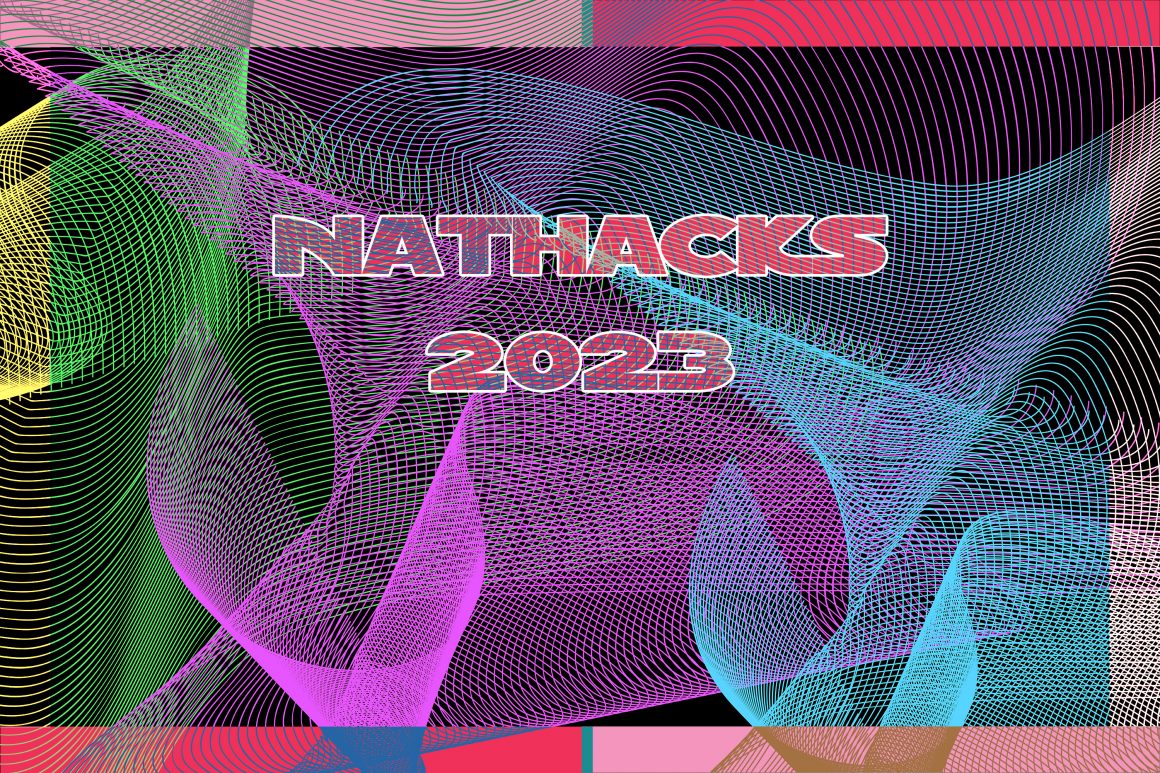
A neurotechnology hackathon coming to a university near you
By Leonie O’Sullivan, September 17 2023—
NeurAlbertaTech’s third iteration of natHacks — the largest neurotechnology hackathon in Canada — is returning to Alberta, running from Nov. 16 to 19. The Gauntlet spoke with NeurAlbertaTech executive members — Yash Mouje, the vice president of media relations, and John Cooper, the chief communications officer — about the hackathon.
NeurAlbertaTech is a non-profit organization run by enthusiastic students at the University of Alberta, Calgary and Lethbridge. This platform brings educational and professional development opportunities to students interested in neurotechnology — where coding and neuroscience come together to solve some of the world’s trickiest problems.
“Our main aim is to create a world-class neurotechnology ecosystem in Alberta using the local talent,” said Mouje. “We can work on bringing the existing talent pool through events like natHacks [while] simultaneously working on building new talent through our series of workshops and courses.”
natHacks aims to inspire neurotechnology beginners as well as more experienced hackers. If you are new to neurotechnology and are unsure of what type of problem you would like to hack or don’t know anyone to create a hacking team with, the organizers at natHacks can match you to a problem provider and to a team. Don’t know how to code? Don’t know how brains work? Don’t worry. natHacks can teach you all that.
“We have a multitude of workshops leading up to and during natHacks. Since not everyone will have the required knowledge to solve the problems they would like to, we [provide] user workshops [on] skills such as programming, digital signal processing and some basics of neuroscience,” said Mouje.
The teams at natHacks are multifaceted and built from students with varying subject-level expertise. For example, last year, one of the teams had two computer science majors, a neuroscience Ph.D. candidate and a biology major.
“What I think natHacks does exceptionally well is bringing in a diverse, interdisciplinary talent pool,” said Cooper. “A lot of the time, you have a computer science student, but they don’t know what to do with brainwaves. It does take someone maybe from neuroscience to interpret that — but they don’t know how to write the code for the app that the judge will see, so it has to go through a computer science student. [natHacks] really creates those bridges.”
Last year, one of the winners of this hackathon tackled the well-known struggle of study focus. Most students will have heard of the Pomodoro technique, a time management system that prompts 25-minute work sessions followed by five-minute breaks. The students realized this method was too general to work successfully for a broad range of students.
“They put a brain tracking headset on, and based on a certain ratio of brain waves, they could tell [whether] you were in a more-focused or less-focused state,” said Cooper. “Instead of having standard [set time intervals], it would [assess the situation and could] say okay, you’re still focused, so it doesn’t make sense to end it here and stop your productivity, or maybe you’re fading out of productivity after 15 minutes. [It would prompt you to] give the brain a break until it’s ready to come back.”
Not much is free nowadays, so you can be glad there is no cost to register or attend natHacks. Not only that but thanks to their sponsors, you can win seed funding for continuing the development of your project. You can also expect lots of prizes in the form of swag wearables. Students can access brain-computing interfaces (BCI) hardware — which natHacks will even ship to you in Canada.
“We want natHacks to be as accessible as possible [and for] everyone who is interested in neurotechnology to come and learn together,” said Mouje.
The 64 hour long natHacks weekend is not all problem solving. I asked Mouje and Cooper about the time slot in the schedule for an “SSBU tourney.” Cooper smiled as they confirmed that this was for a Super Smash Bros. tournament.
“It’s like a work hard, play hard — all over three days,” said Cooper.
In today’s world, the neurotechnology field is booming and aiming to fix many of our global problems. Neuralink, a neurotech startup co-founded in 2016 by Elon Musk, sets out to help individuals restore their autonomy and independence.
“They are creating an implantable device that can act as a way to send signals to your brain. So, in the future, we could have an application that would help people regain muscle control. [For example, with] people who have had strokes and have lost control of their muscles, this technology can help [them],” said Mouje.
Career paths in neurotechnology can pique the interests of a wide range of students as they can vary from engineering neuroprosthetics to more clinical roles in healthcare.
“The more clinical [roles involve] working in a healthcare setting to treat neurological disorders. Two ways that they do this are called transcranial magnetic stimulation (TMS) or deep brain stimulation, which are techniques used by some medical doctors we have collaborated with on project teams or have spoken on our speaker series natChat,” said Cooper.
Over the three-day hackathon, there will be three sites with in-person hacking in Edmonton, Calgary, and Lethbridge. You can also attend the hackathon virtually if you cannot attend one of the in-person sites. natHacks is a symbiotic setting for both students and problem providers alike. Students receive educational workshops and training alongside networking opportunities, while problem providers can test out ideas through natHacks.
“They can test their idea through these groups of hackers in an essentially zero-risk environment,” said Cooper. “I think it’s really cool that we have all these minds across Alberta at different places [coming together to do] the same thing.”
Apply here to get involved at natHacks as a hacker, mentor, judge, problem provider or volunteer. Check out the creative natHacks logo — Nathan, the aardvark — and keep up with NeurAlbertaTech by following them on Instagram.
